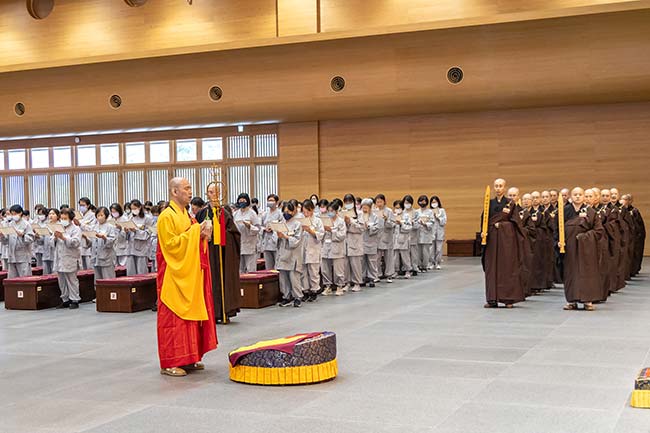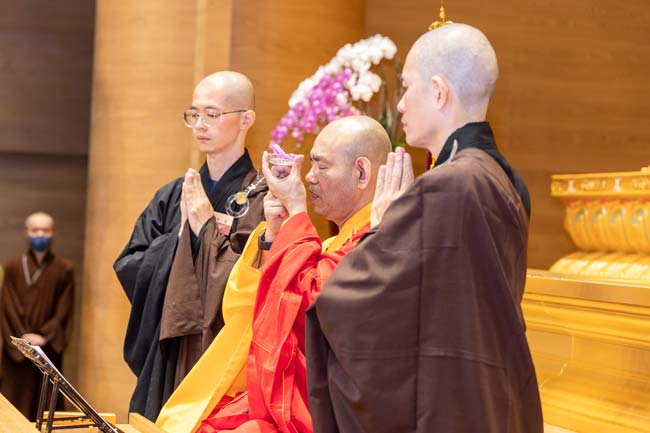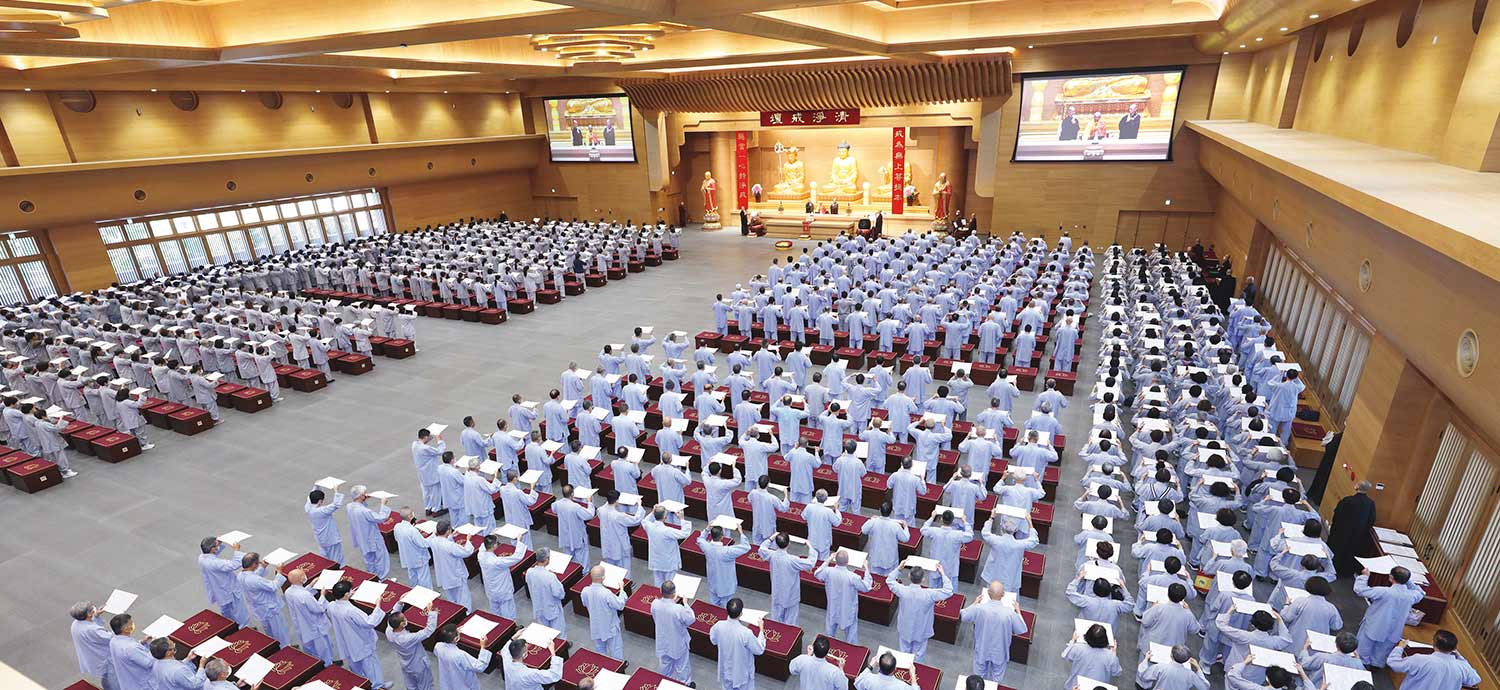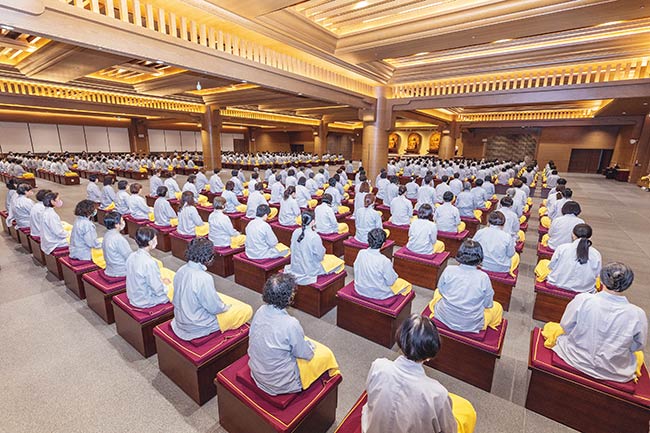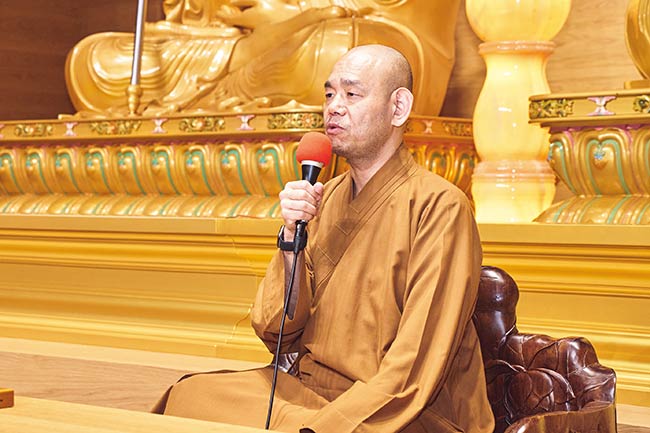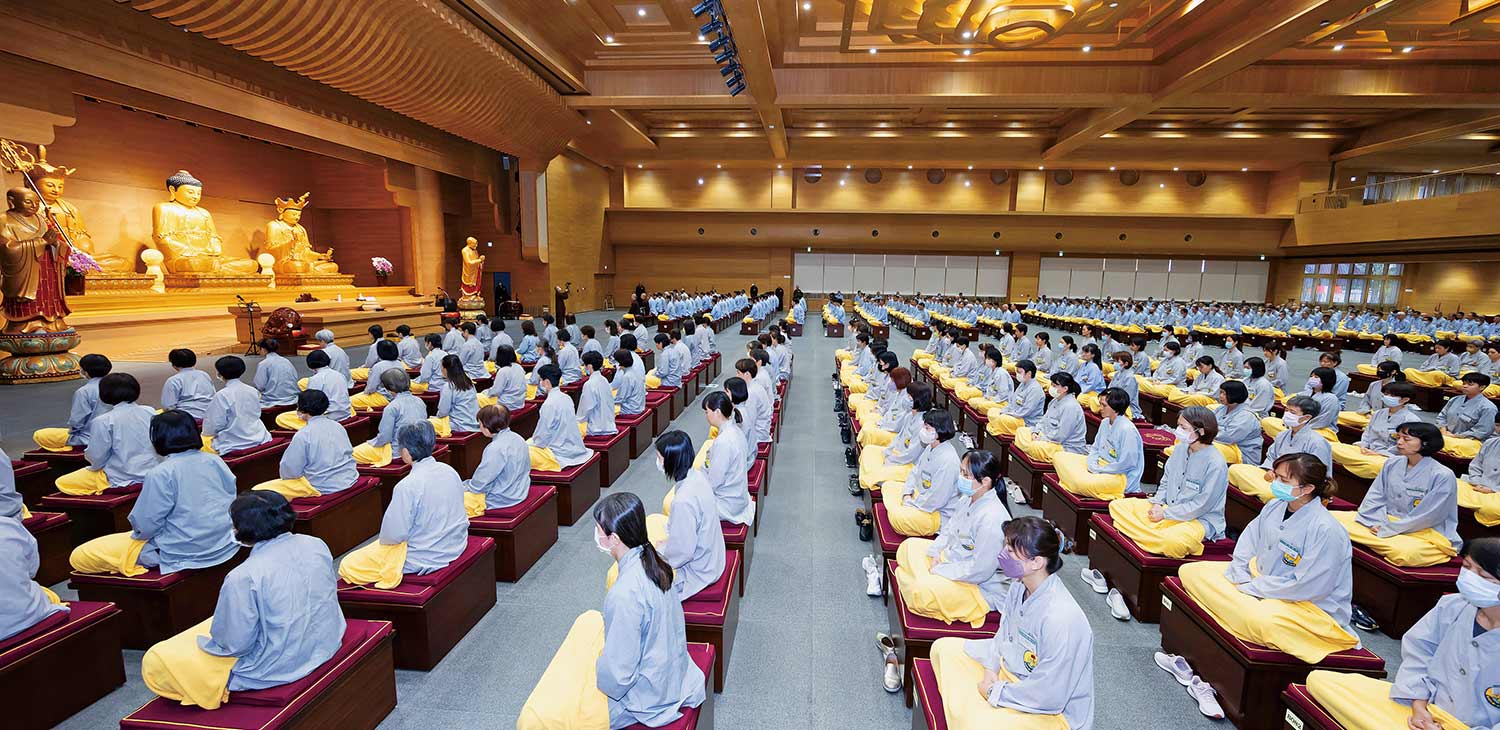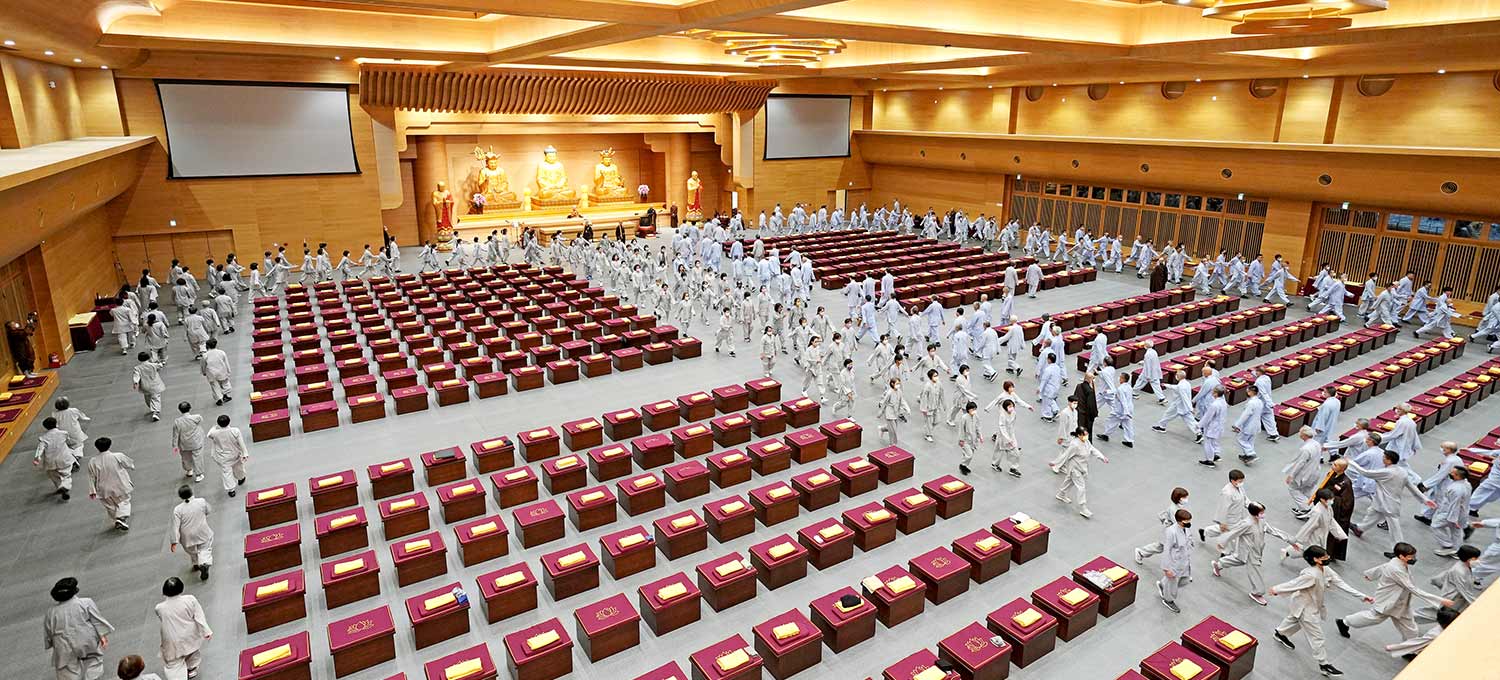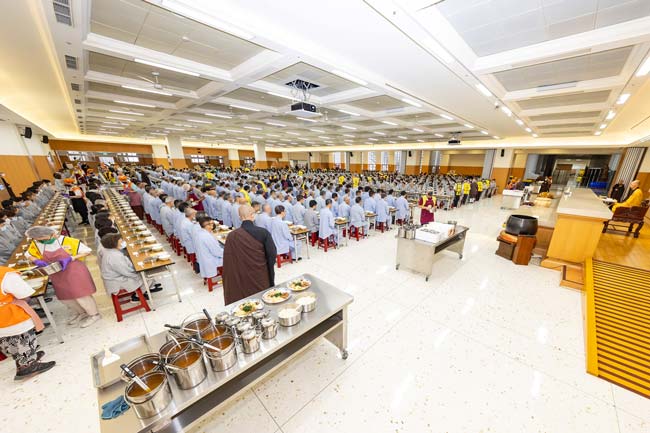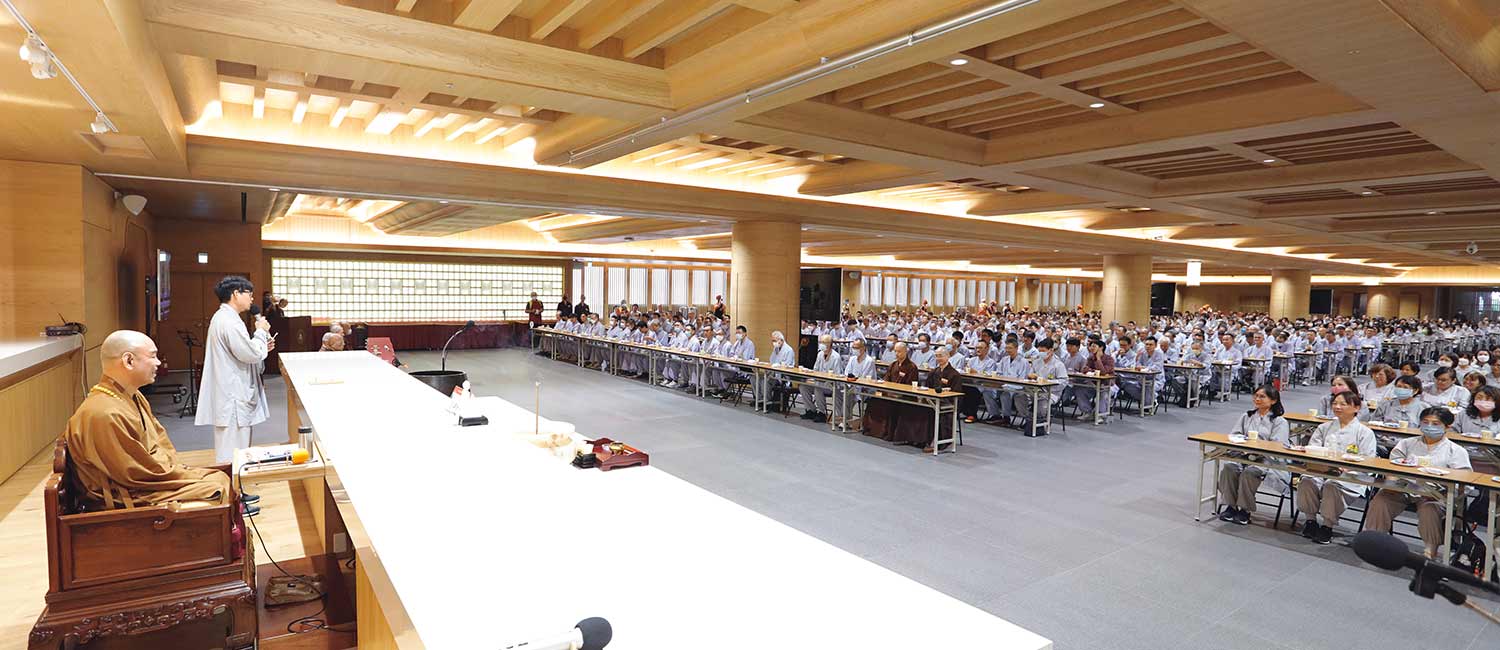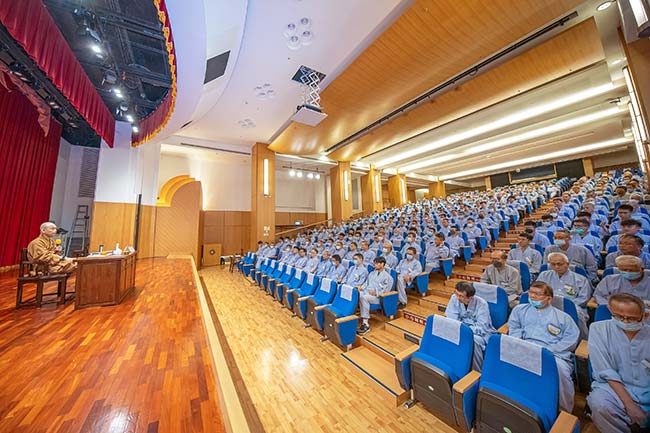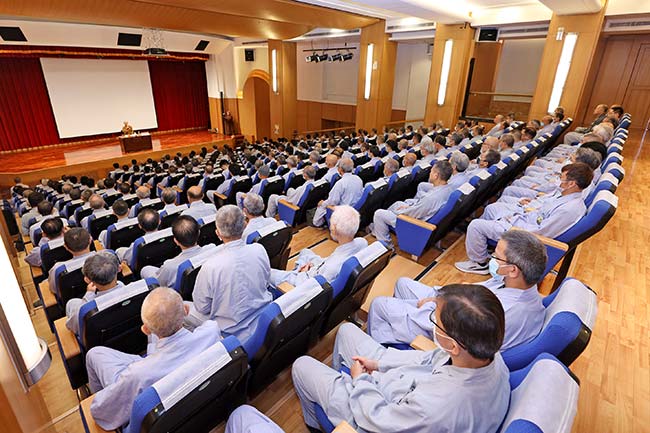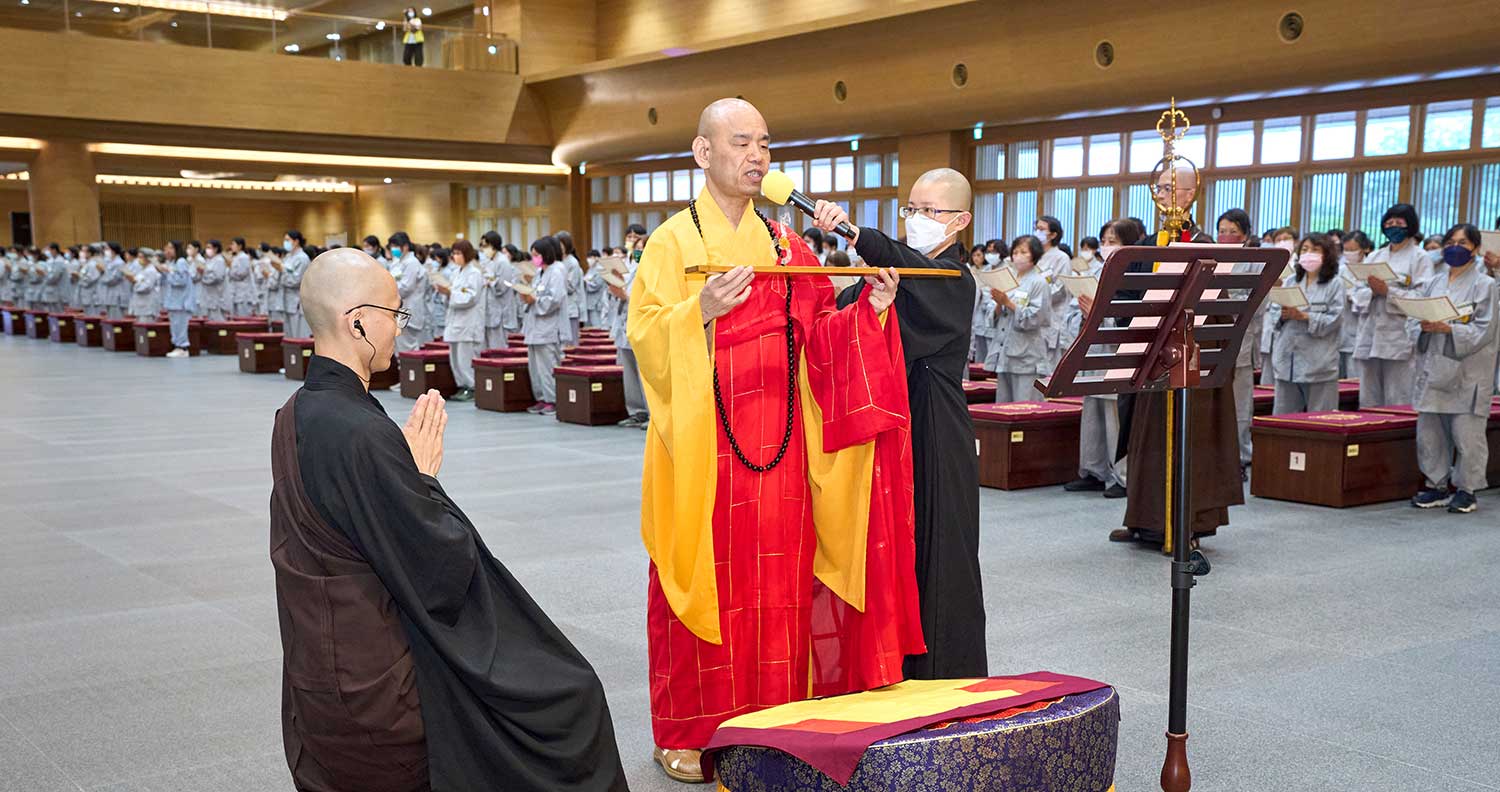
The 2024 Academic Summer Chan-7 Retreat at Chung Tai Chan Monastery
The virtuous ancients said, “If one wishes to achieve awakening within a set timeframe, it is essential to establish a strict schedule and practice for seven days.” To widely propagate the mind-ground teaching of Chan and guide practitioners in realizing their intrinsic nature, Chung Tai Chan Monastery held a Chan-7 retreat for academics from June 30th to July 7th, 2024, and respectfully invited Venerable Abbot Jianying to lead the retreat.
Over 1,100 participants, including professors, university and school teachers, college students, and individuals from the U.S., Italy, Australia, Thailand, the Philippines, Hong Kong, Japan, and Taiwan, took advantage of this rare opportunity to practice meditation with ten daily sessions. Through sitting meditation, walking meditation, morning and evening sessions, and formal meals, they diligently cultivated mindfulness in both action and stillness, aiming to deeply understand their intrinsic nature.
Three Learnings to Perceive True Reality
At 3:30 p.m. on June 30th, Venerable Master Jianying, the abbot of Chung Tai Chan Monastery, presided over the purification and initiation ceremony at Yuanming Lecture Hall and Yuanjue Chan Hall. During the subsequent opening tea reception, he reminded everyone that the purpose of the Chan-7 retreat is to awaken the mind, see our true nature, master our minds, and be free from afflictions. He also posed the question, “Who is the one drinking tea?” as a prompt to help participants awaken to the mind that is present in every daily activity, yet often goes unnoticed.
As the Buddhist teaching goes, “Sila is the foundation of supreme enlightenment.” On the second day of the retreat, Venerable Master Jianying compassionately transmitted the Eight Precepts to the attendees, guiding them in purifying both body and mind. This purification serves as a vital support for deepening meditation practice. Master Jiandi, the dean of the Chung Tai Buddhist Institute for Monks, also delivered an insightful lecture on the precepts, reminding the participants that “Sila gives rise to samadhi; samadhi gives rise to prajna.” By diligently observing the precepts throughout the retreat, practitioners can nurture the three essential disciplines—sila, samadhi, and prajna—leading to profound concentration and wisdom, enabling the mind to become tranquil and perceive reality.
